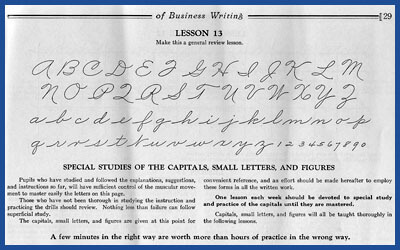Do Kids Still Need to Learn Handwriting?
Written by Sandie Barrie Blackley, Speech-Language Pathologist
Published on September 24, 2024

In our every-day-more-digital world, is handwriting losing ground?
In our increasingly digital world, many parents wonder: Do we still need to teach children handwriting, or can this skill be replaced by typing?
The simple answer is yes—handwriting is still essential. While technology is ever-present, research shows that handwriting plays a key role in cognitive development, motor skills, and literacy.
For young children (pre-K, K, 1st grade), learning to form letters is an important foundation for reading and writing. However, after these early years, structured handwriting instruction often falls away. This shift, especially with the adoption of the Common Core State Standards (CCSS), which only emphasize handwriting through grade 1, has sparked concern among educators and researchers.
Handwriting isn’t just about penmanship; it impacts broader academic skills. Studies confirm that children who write by hand experience benefits in reading comprehension, spelling, and overall writing quality. Handwriting instruction is particularly critical for children with learning differences, such as dyslexia and dysgraphia. For instance, schools like Camperdown Academy use cursive handwriting to help dyslexic students organize and process written language more effectively.
Handwriting difficulties can limit a child’s ability to express thoughts on paper. As writing expert Steve Graham states, “If children cannot form letters legibly and quickly, they struggle to put their thoughts into words.” This is why balanced instruction that includes both handwriting and typing is essential. Typing can provide speed and efficiency, but handwriting supports deeper learning and memory retention.
At Lexercise, we take handwriting seriously, especially for children with dyslexia and dysgraphia. Our clinicians follow evidence-based practices like those outlined in Putting Pen to Paper: A New Approach to Handwriting by Melvyn Ramsden, ensuring that our students develop legible and fluent handwriting skills. Once handwriting basics are in place, we introduce typing to further support literacy and writing development.
If your child has difficulty with words, Lexercise can help. Our online services for struggling readers, writers, and spellers are a motivating blend of high-touch and high-tech. Take a look at our Online Dyslexia Testing and Treatment page or contact me directly at Info@Lexercise.com or 1-919-747-4557.
Improve Your Child’s Reading
Learn more about Lexercise today.
Schedule a FREE
15-minute consultation


